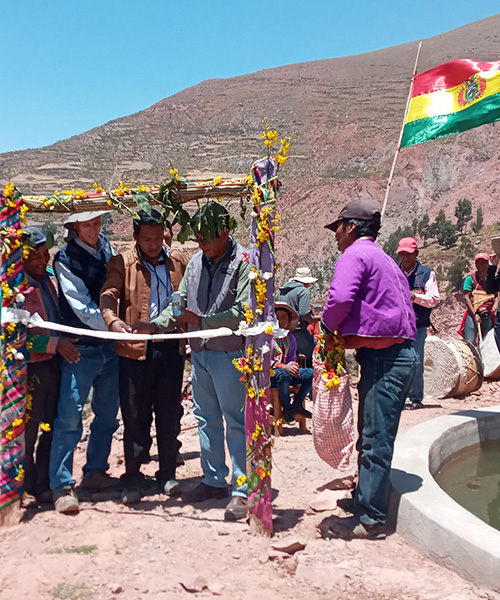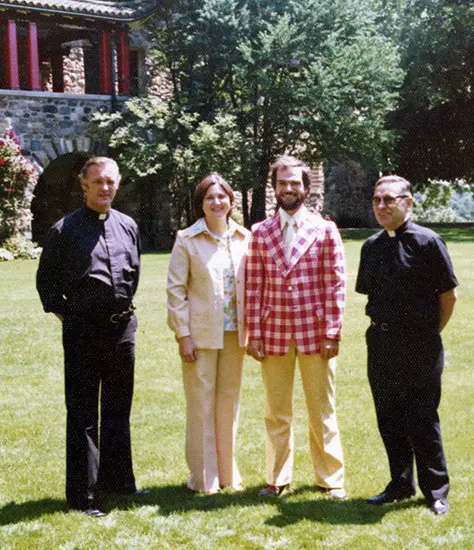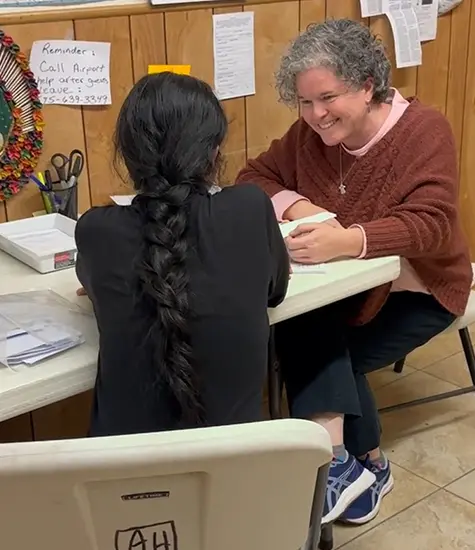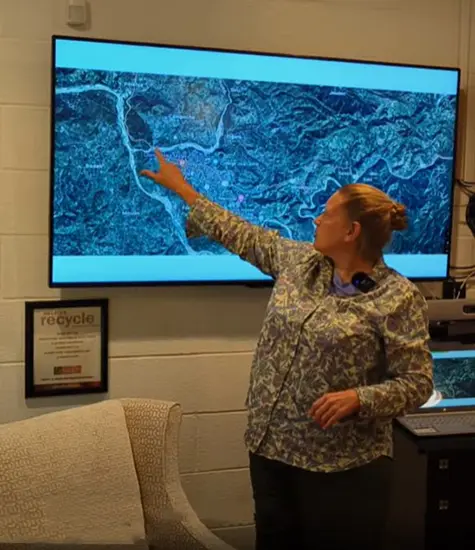A collaborative project spearheaded by Maryknoll Lay Missioners recently restored a reliable water supply to a remote village high up in the Andes.
Through their work with rural families who have members living with disabilities, Maryknoll lay missioners Joe Loney and Filo Siles have come to know many of the almost 100 spread-out communities that make up the local municipality of Tacopaya, Bolivia.
Sachakaimani is one of these communities, a small hamlet that is home to 16 families. One of these families is headed by Doña Evarista, who was widowed three years ago and is raising her six children, two of whom are deaf.
The community’s water had previously been supplied by an irrigation system that was destroyed by landslides caused by heavy rains during the rainy season. Doña Evarista’s and the other families are subsistence farmers, and their livelihoods were threatened by the interruption of a reliable water source.
In a true, collaborative community effort, the villagers supplied the manual labor, the local government supplied the cement and the steel, while Maryknoll Lay Missioners and the School Sisters of Notre Dame teamed up to supply the piping. Through this effort, the community rebuilt a better, stronger irrigation system that now brings water from an underground spring four kilometers away, traversing a mountain gorge and collecting in a reservoir before being distributed in an irrigation system throughout the village.
The community celebrated the completion of the project with a blessing by the local pastor, Father Ademar Onofre, and a dance around the new water reservoir pool.
Joe Loney recently sat down to record a video about this inspiring collaborative project and the celebration of its completion.
Click the top image to watch the video.









